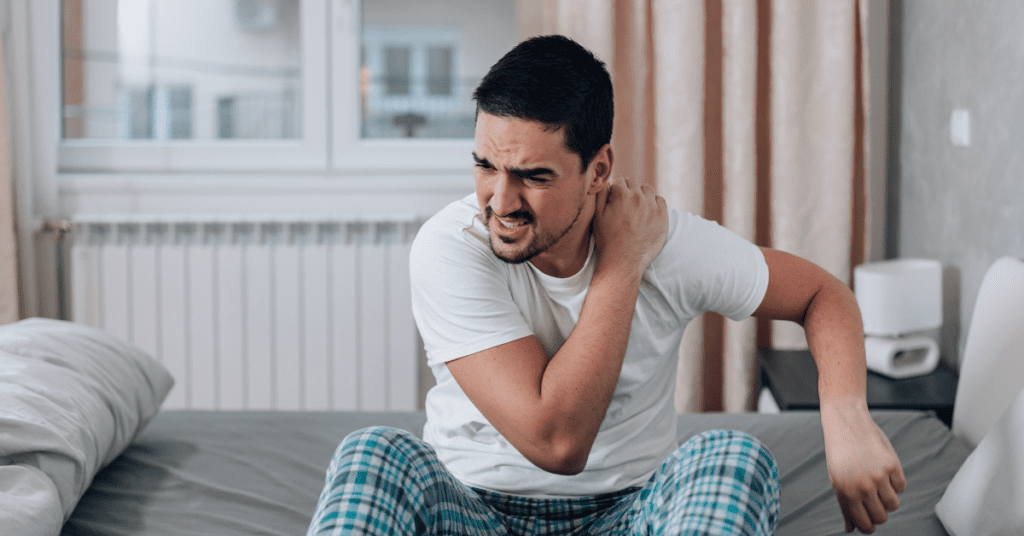FAQs
What is stiffness in Ayurveda?
Stiffness in general is known as Stambha in Ayurveda. The causes of muscle tightness are the Vata and Kapha dosha imbalance, affecting muscle tissues. Manya Stambha (Stiff neck), and Hanu Stambha (lock jaw) are some of the conditions explained in the classics. This condition worsens with improper exercise, digestive problems, or exposure to chilly weather.
What is the main cause of stiffness?
Bad sitting positions, less movement, and imbalance within the doshas are some of the causes of stiffness such as lower back pain. Physical overwork of the body without warming up builds tension in the muscles, causing stiffness. The imbalance in external conditions and emotional stress also would count as significant causes of muscle tightness.
How to remove stiffness from the body?
Abhyanga and Sweds can provide effective stiff neck treatment and overall relief from stiffness in the body. Gentle stretching exercises help in reducing muscle tension. Proper diet and modification of lifestyle according to your constitution can help in preventing recurrence. Stress-reduction techniques practiced regularly are also essential.
Can stiffness be cured?
Almost all types of muscle tightness or stiffness can be effectively managed by giving the right care and attention to it. The very main factor is to treat the root cause behind the muscle tightness. Regular practice of the advised exercises and lifestyle changes helps in preventing its recurrence. However, chronic ones may need some treatment strategies for the long term.
Can muscle stiffness be treated with Ayurvedic therapies?
Yes, Ayurvedic treatment for muscle stiffness includes Abhyanga, Swedana, and specific herbal preparations along with diet and lifestyle modification. But most importantly, treatment success depends on the correct protocol that one follows and the necessary changes in one's lifestyle.
REFERENCES
-
Singhal, S, Mangal, G (2025). A review of Mamsgatavata with special reference to Fibromyalgia.
Journal of Ayurveda and Integrated Medical Sciences.

-
Ahmed, S et al. (2003). Clinical approach to a patient presenting with muscle stiffness.
Journal of Clinical Neuromuscular Disease, 4(3), 150-60.

-
Miller, T et al. (2021). Reliability and Validity of Ultrasound Elastography for Evaluating Muscle Stiffness in Neurological Populations: A Systematic Review and Meta-Analysis.
Physical Therapy, 101(1).

-
K.P, H et al. (2024). Enhancement of Mobility and Muscle Strength in Elderly through Ayurveda.
AYUSHDHARA.

-
Naram, S P, Gawali, K (2024). MANAGEMENT OF FROZEN SHOULDER WITH AYURVEDA: A CASE STUDY.
International Journal of Research in Ayurveda and Pharmacy.



